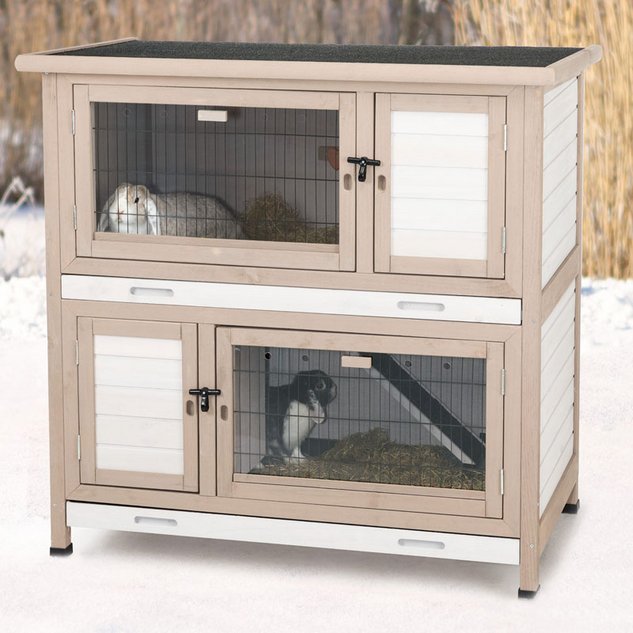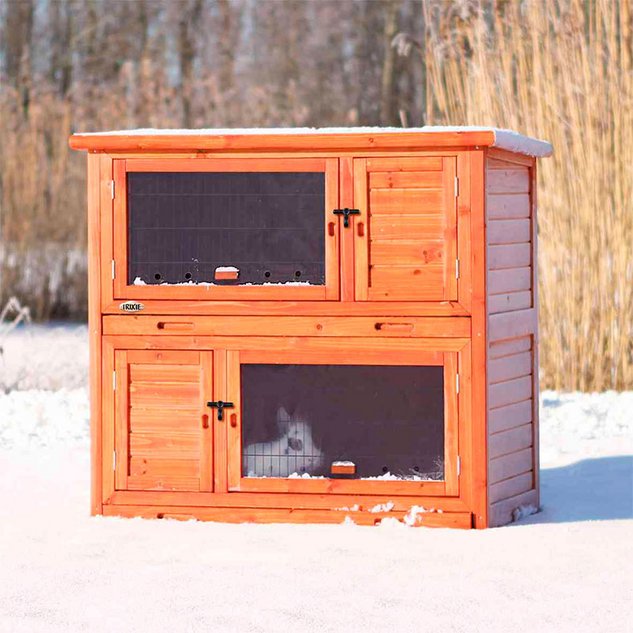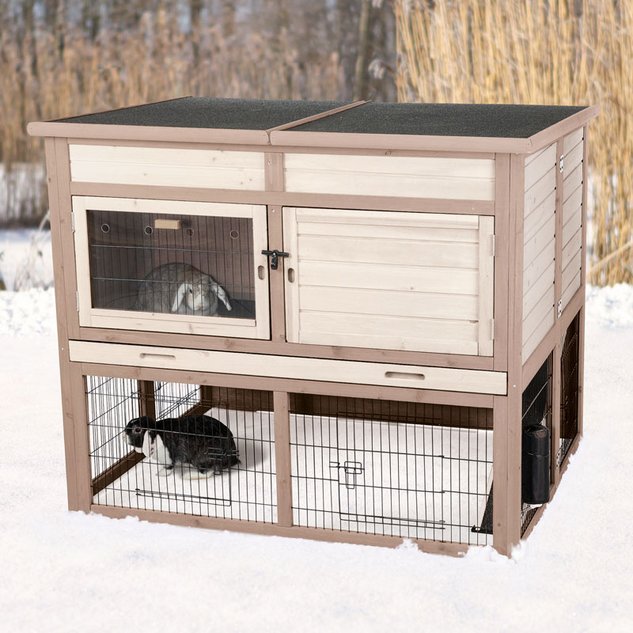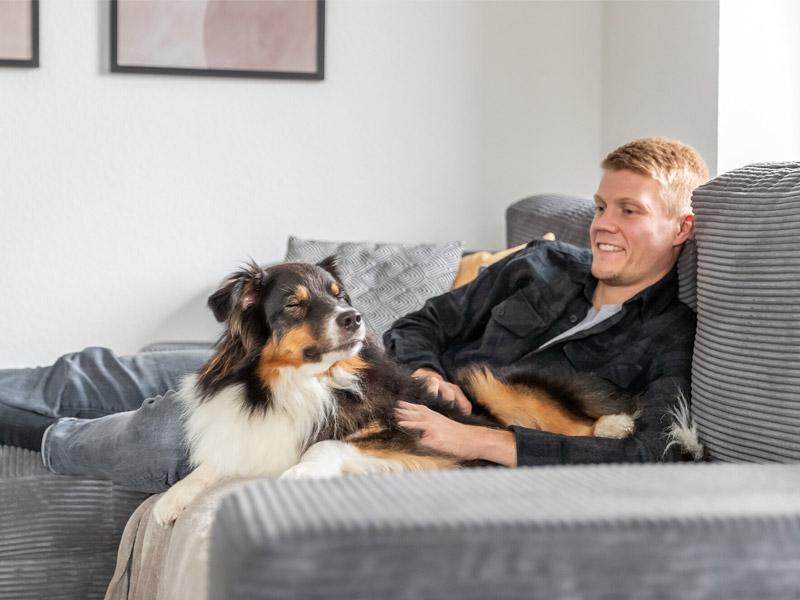Keeping rabbits outside in winter!
Rabbits are most comfortable outside. However, it is important to keep a few things in mind, especially when the outside temperature is in the double-digit minus range:
Healthy rabbits can handle temperatures as low as minus 20 degrees without any problems. The prerequisite for this, however, is that they have already spent several months in outdoor housing, so that a thick and warm winter coat could develop.
Important: Chronically ill, pregnant or old rabbits should be kept indoors in winter. Acutely ill small animals are also better off in a warmer environment. Care should be taken to avoid abrupt temperature changes when animals are brought indoors.
The winterdomicile
A winter-proof enclosure includes a covered area, a shelter and enough run. For long-haired rabbits, the entire outdoor area should be covered to prevent snow clumps from forming on the fur or the animals from getting too wet and cooling down too quickly.
Especially in cold temperatures, rabbits like to move together and warm each other. It is therefore very important that rabbits are at least in pairs when kept outside in winter.
Rabbits also need enough space in winter. A free run of at least 2 square meters per animal is necessary to keep them warm hopping around. You can create a varied outdoor enclosure with the help of houses, stones, wooden blocks or boards. Rearranging the elements will arouse the rabbits' curiosity all over again.
Warm home
A well-insulated indoor hutch or shelter in a weatherproof indoor space, such as a garden shed or shed, provides a warm retreat for your rabbits and protects them from drafts, wind, rain and snow. Good insulation is provided by absorbent bedding, straw and hay - please bed generously. Check daily that everything is dry and replace the material if necessary.
Please note: retrofitting stalls with Styrofoam or covering them completely can cause condensation and contribute to mold growth inside.
In the fall and winter, enclosures quickly become muddy. In that case, you can spread bedding such as straw, shavings or even natural bark mulch. Various substrates for terrariums are also excellent for this purpose.
Out of sight ...
Especially in winter you spend less time in the garden and with the rabbits. Therefore, it is important to keep a close eye on your little friends during daily feeding and cleaning. Pay attention to the following points:
- Are the rabbits eating properly and enough?
- Are they lively and curious?
- Are the eyes as well as the rabbit clean (please also check the rabbit's bottom)?
- Does the rabbit have small wounds?
If your rabbits like to be picked up, you can combine this with regular grooming to look at them more closely. Always make sure you use the correct holding technique to avoid injury: one hand directly behind the front paws in the chest area and one hand under the rabbit's bottom.
Concentrated food and drinking
Special winter food helps to build up winter coat and valuable fat reserves. For example, celeriac, parsnip, parsley root or beetroot can be fed as early as autumn. These vegetables are high in calories and help build up the necessary fat reserves. Various types of cabbage are also good to feed in winter, but should only be given in small portions. Our Pure Nature articles are a welcome snack in between meals.
Especially in winter, a large bowl is more suitable because larger amounts of water take longer to freeze.
Tip: By putting a ball in the bowl, the drinking water will not freeze as quickly in winter, as there is more movement in the water. On particularly cold days, you can also place a heating pad under the bowl.
Drinking bottles are best placed in an insulated area of the house. Be careful when there is a lot of frost, because then the mouth and tongue can freeze to the metal tube. In this case, it is better not to use drinking bottles.
Important
Avoid bringing your rabbits indoors every now and then. Rabbits find it very difficult to cope with the large temperature fluctuations and can become ill more quickly as a result.
And in general: rabbits are very social animals and need other rabbits around them. Therefore, never keep a rabbit alone!




